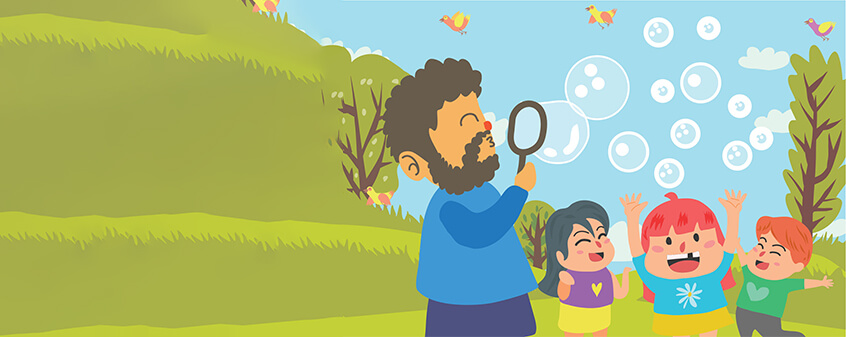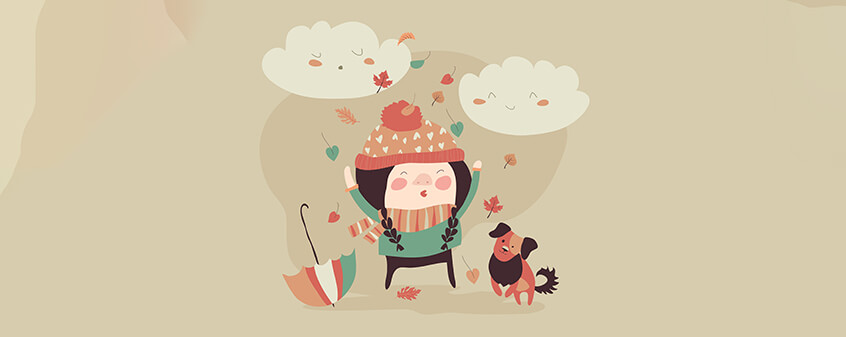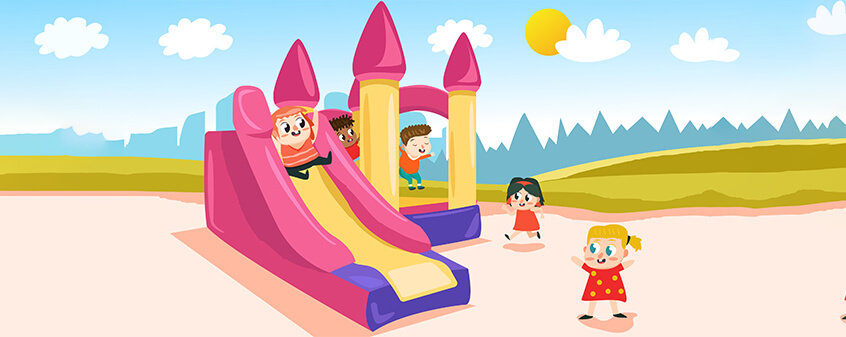To demonstrate how the subconscious mind works, I often tell children this well known story of two salesmen who were sent to Africa to assess the opportunity of setting up a shoe factory. One salesman telegraphed back to say: ‘No opportunity. No one wears shoes.’ The second salesman telegraphed: ‘Great opportunity. No one wears shoes.’ The subconscious mind is the engine that determines our conscious thoughts, the actions we take, and the decisions we make. Both salesmen were looking at exactly the same thing but their perceptions were completely different. This is because, at the subconscious level, one was tuned to complacency and the other to take risks and see opportunities.
Anthony Robbins, who conducts Business Mastery and Life Mastery courses, is a transformational teacher. I attended his ‘Date with Destiny’ session in Bali in 2011, which turned out to be a complete eye opener. He spoke about the process of reprogramming the subconscious mind and the patterns that form over the years. During the course I realized that as an adult, I always thought that my decisions were made by my logical conscious mind using the power of reasoning, when the reality is that 90 percent of my decisions are programmed by my subconscious."
The way we perceive things depends on what is stored in our subconscious mind. If you have grown up thinking lack, you will hoard. If you grow up with the fear of failure, you will fear taking any action that has a chance of failure. If you have grown up hearing ‘money is the root of all evil’, then financial abundance will evade you no matter how much your conscious mind believes and wants to be rich. The subconscious mind is more powerful than the conscious mind. If the desires of the conscious mind are in conflict with those of the subconscious mind, it is the subconscious programming that will win. If as a child you were repeatedly told or received signals that you were worthless, those messages have been programmed in your subconscious mind. These will undermine your best conscious efforts to change your life and succeed in adulthood even if your conscious mind decides it wants to. The subconscious mind will sabotage any efforts of your conscious mind unless the two are in sync, or if you can find a way to reprogramme your subconscious brain. In simple words, if our subconscious brain believes we don’t deserve success or love or happiness, we will keep sabotaging our conscious efforts to achieve any of these.
The significance of this information is huge for parents. Given this understanding of the constant download into our subconscious brain, imagine the consequences of hearing a parent say: ‘you are a stupid child’ or ‘you can’t do anything right’. Parents need to know that we programme our children with verbal and non-verbal communication. Our children will acquire their first perception of self, positive or negative, directly from us.
Positive affirmations
Roan, aged 6, was upset and refused to go to school no matter how hard his mother tried. The culprit was his math test. He got one sum ‘wrong’. Roan’s mother was baffled by why her son, who loved school, suddenly did not want to attend anymore. For little Roan, who was used to getting all his sums right every time, to get something wrong was highly detrimental. He subconsciously felt that he had let his mom down. Unknown to his mother, Roan had been programmed for perfection; she wanted perfection in everything she did in her day to day life. Roan’s mom carried this trait from her childhood where she had been taught that anything less than perfect was unacceptable."
‘Raul! This painting is really shabby. The colours are all over the place. When will you learn to be neat?’ That is Raul, a 4-year-old boy, being criticized for not being perfect in his work. He was not encouraged for the effort that he put in. Later, after constantly being exposed to such feedback, I found out that Raul stopped painting all together and developed the fear of not being able to do a good job.
Mark Twain once remarked: ‘Keep away from people who belittle your ambitions. Small people always do that, but the really great make you feel that you, too, can become great.’ And I couldn’t agree more. Many of us as adults live scared of failure because of the programming we have had when we were children. We are either scared to fail or play it safe by choosing the conventional path to avoid making mistakes. We avoid taking risks. Our subconscious mind programmes our conscious mind to feel it is better not to have tried than to have tried and failed.
Our perceptions can alter reality
What we are told about people, situations, and places often cloud our mind and our approach towards them. An independent research study was conducted with individual teachers being told that a given class (A) and another class (B) were segregated according to the aptitudes of the students. The only difference being that what they were told was reversed, so the students scoring the higher academic scores were labelled ‘mediocre’ and the ‘mediocre’ class was labelled ‘high achievers’. What actually happened is that the mediocre group of students began scoring higher grades and vice versa. A teacher’s perception of a child can also affect his academic outcome. This is true for both Roan and Raul. As long as their programming by parents and teachers creates fear, it will not serve them in their childhood or, later, adult life. The words reinforced in Roan’s mind are ‘fear of imperfection’. In Raul’s mind he is ‘careless’ so there are chances that he will grow up to be careless, even if he and his mother wants the opposite to happen. Raul’s mother approached his teacher to discuss her son’s progress. The teacher told her how Raul needed to change his perception about himself and his studies, for which, she needed to change her perception of her child first. A few weeks later, I met Raul’s mother and she had a different story to tell.
‘I began by telling him that painting is what mattered; not painting within the lines. I told him that getting things incorrect was okay and we could always try again till we mastered them. I was careful not to use words like “careless” and “clumsy” while talking to him. The change was gradual but definitely visible. He became a more confident child, unafraid to attempt things.’ This is a very important lesson for parents, teachers, and educators of the 21st century child. Positive affirmations infuse the child with positivity and enthusiasm to do better. If we’ve grown up with negative traits, which we are aware of and constantly try to eliminate them, they only reinforce those characteristics. Instead, we need to focus on how to develop and foster the positives, which will go on to enrich our life."
Most of us carry the burden of our childhood experiences into parenting. Roan’s mom grew up in a family that never accepted imperfection. She believed that it was the right way and continued to implement it in her parenting approach. Self-limiting beliefs caused by assumptions from one’s childhood limit us from reaching our full potential; they stop us from being as successful and as happy as we’d like to be. A limiting belief acts like an anchor that weighs us down and does not allow us to move forward. Limiting beliefs are stored in our subconscious mind and are often hidden from our conscious awareness. We usually experience them when we want to step outside our comfort zone to do something new and challenging.
When explaining how this works with my students, I use the concept of the shackled elephant. An elephant calf in the circus generally has one of its hind legs shackled to a chain. In the beginning it tries to break away, but because it is not big or strong enough, it remains in its place. After a while it goes only as far as the chain allows. When it grows up are easily in the position to break free of the ankle chain, but they never challenge their boundaries because they believe they cannot break free based on the habituation they learned when they were young. We can learn a lot from it.








